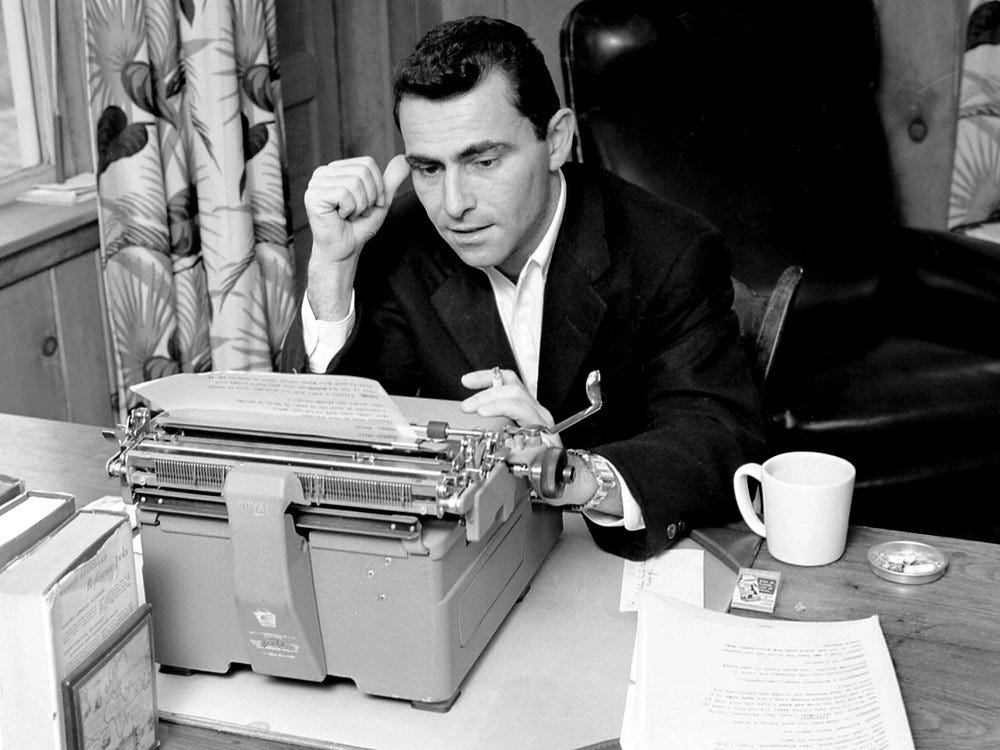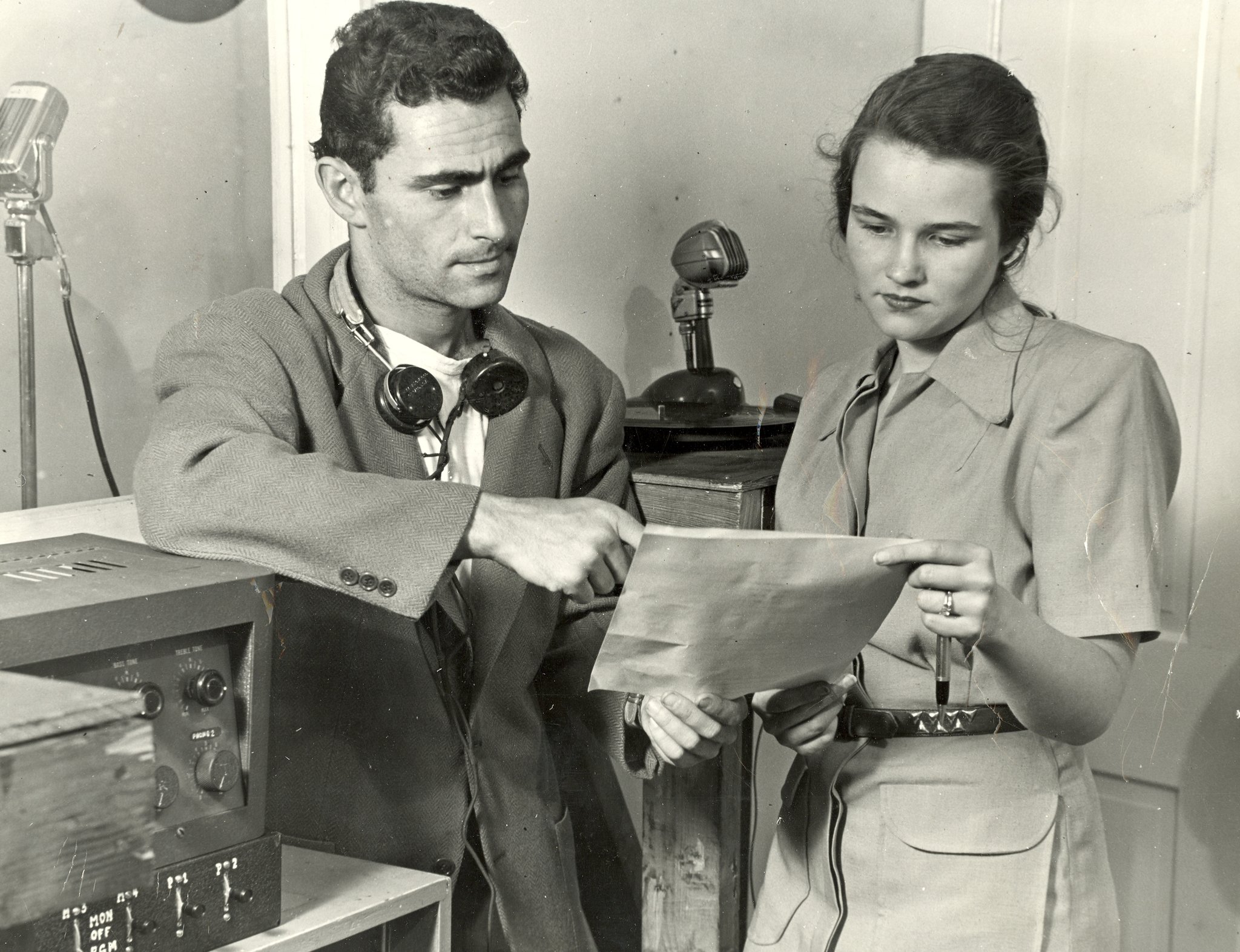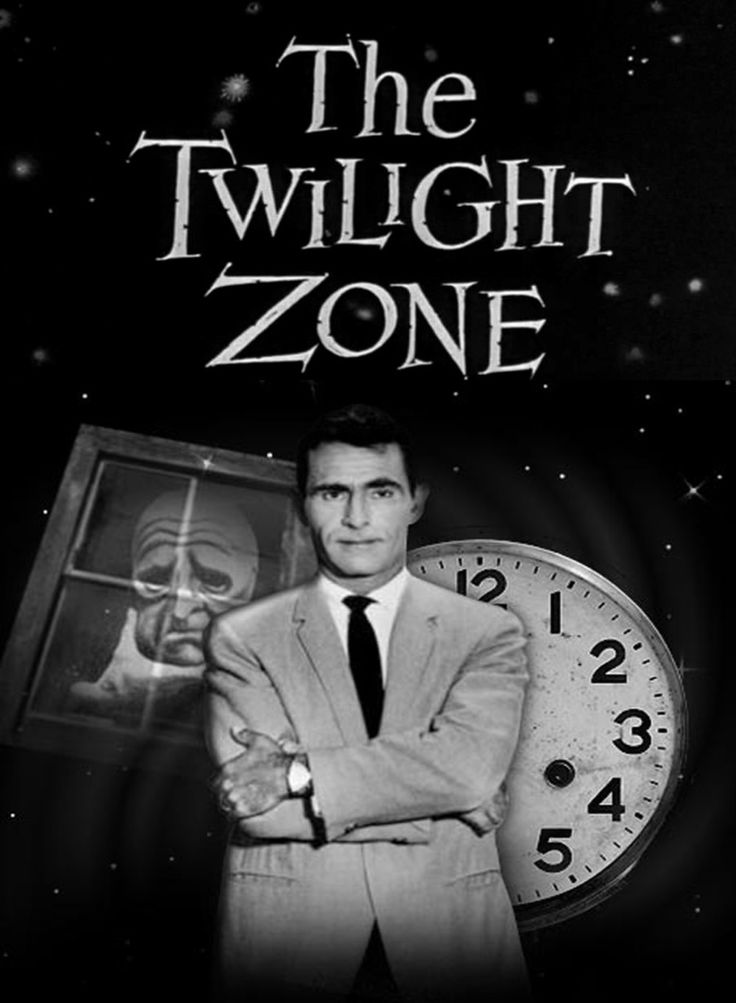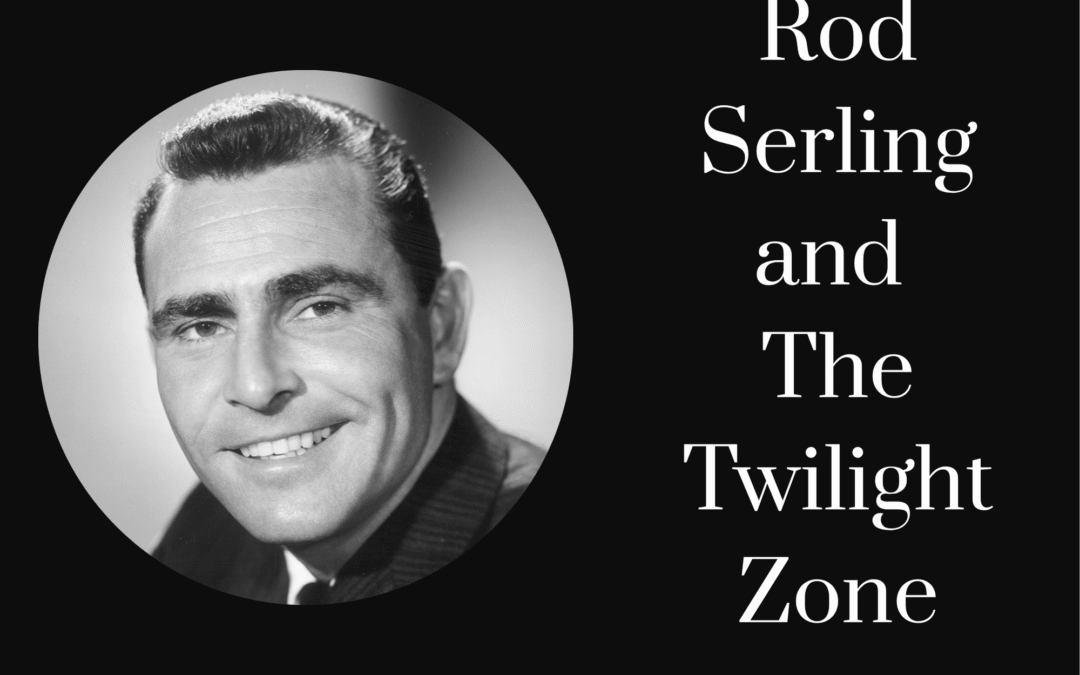This week on the blog, we are covering the great Rod Serling and The Twilight Zone. Learn about Rod Serling before his greatest success as well as a close look into the making of the hit television show. We also included some of the best episodes to check out!
Rodman Edward Serling was born on December 25th 1924 in Syracuse, New York. When he was two years old, his parents, Esther and Samuel moved the family to Binghamton, New York where Samuel got a job a grocer. Rod’s older brother Robert, was an aviator and an author. From a young age, Rod was an avid radio listener, especially suspense stories. He was also writing during his high school years and became the editor of the school paper. Ro wanted to leave school early to enlist in the Army just like his older brother, but he was talked into staying because a teacher told him to. After high school, Rod joined the army hoping to fight the Nazis but was sent as a paratrooper in the Pacific. He was injured at the Battle of Leyte and sent home with a purple heart. Rod found that it was hard to readjust to life back in New York. It was around this time that his father Samuel suddenly died of a heart attack.

Rod moved to New York City to start his writing career. After a few years of freelance writing he sold one of his plays to a radio station, Grand Central Station. In the early 1950s, Rod made the switch from radio plays to television plays. He met and hired Bert Granet as his manager. Granet was impressed with Rod’s The Time Element, which was about a soldier going back in time to warn the people of the attack on Pearl Harbor. With Granet’s help, Rod was able to sell his play Patterns, to the Kraft Television Theater. Patterns is about a corporate boss who is running out of ideas and tries to undermine his competition to keep his job. Critics praised the play as a high point in television’s history. As he became an overnight success, many offers came in for Rod to write for them. This initial period was cut short as the pieces he sold to publishers failed to make a hit.
The Twilight Zone ushered in a new era of fantasy, science fiction and horror into the homes of the American people. The term “the twilight zone” is used to describe the character’s experiences with unusual events. Each episode of the show would have an ending with a moral element. In July of 1959, Rod signed a contract with CBS to create a new series. Rod hired screenwriters, Richard Matheson and Charles Beaumont to help create the unique atmosphere. Serling himself wrote 92 of the scripts. Many of the show’s themes were what Serling believed. The first episode premiered on October 2 1959 to rave reviews for Rod and his writers. At first, the audience did not like it. CBS wanted to cancel the show after episode 3, Mr Denton on Doomsday failed to make it to 20 million views. Luckily, the fans of show kept it from cancelling. Within the first season, two episodes are regarded as some of the best episodes ever. They are The Monsters are Due on Maple Street and The After Hours. The music in the first season was composed by Bernard Hermann.

During this time, Rod moved his wife Carol and their daughters to California to work in the new studio system. One the reasons, he moved out west was to avoid the New York editors who he was displeased with when they altered his work. In California, he dabbled in more serious stories. One of these attempts, Noon on Doomsday was similar to the murder of Emmitt Till. Rod believed that the role of media should take more role to help in social justice. The executives at CBS had tried to censor the story by changing the plot, and to move the time setting so that they wouldn’t lose viewership in the South. After this incident, Rod started writing in the science fiction and fiction horror genres. Thus, The Twilight Zone was born.
The second season of the show saw the departure of Hermann for the music and the arrival of Marius Constant. Constant’s opening theme music is what is commonly associated with the show. Rod Serling also appears in the show to deliver his opening and closing monologues. Before production started on the second season, CBS hired James Aubrey. Aubrey thought the Twilight Zone used too much money for only a half hour time slot. He ordered less episodes and demanded that the crew used videotape instead of film. Videotape was only just getting started in the TV industry, and the editing process was difficult. Rod was able to get a few episodes shot on film. In the second season, we get more of the acclaimed episodes such as Will the Real Martian please stand up and The Invaders. The best season of the The Twilight Zone is the third. Many critics believe that the episodes had the sharpest dialogue and carried the groundwork from the prior two seasons. The third season earned the Hugo Award for best Dramatic Presentation.

The later seasons four and five are considered to be weaker than the first three. The major complaint about season four is that CBS ordered the show to go from a half hour to a full hour hour program. Many felt that the premise of the Twilight Zone could not sustain itself in the full hour which led to the endings of the episodes disjointed and rushed. Realizing that the show worked better in the shorter format, the fifth and final season went back to the half hour slot. The opening title sequence introduced the floating door, the smashed window, the eyeball and the Theory of relativity. When Season five was in production, it was also when Charles Beaumont, left the show due to illness. Overall the final season faired better than season 4, but it still didn’t capture the initial spark from the first three. Two of the more memorable episodes are, The Masks and Nightmare at 20,000 feet.

The enduring legacy of the Twilight Zone can be attributed to the human condition through the lens of science fiction. Rod Serling’s daughter Ann said that Rod “wanted to tell important stories”. Many of the episodes touch on issues such as isolation, war, technology, science and more that were important avenues that Rod wanted to explore. Through the show and characters, he was able to express what people couldn’t. Marc Scott said “an alien could say things a politician could not, and he was a very outspoken man”. In the early 1990s, Walt Disney Imagineers were inspired by the show for the Disney’s Hollywood Studio park in Orlando.
Rod Serling died on June 28, 1975 of a heart attack.
Best Episodes
Time Enough to Last – Season 1, episode 8
The Monsters are Due on Maple Street – Season 1, episode 22
Nightmare at 20,000 Feet – Season 5, episode 13
And When the Sky was Opened – Season 1, episode 11
The Invaders – Season 2, episode 15
Sources
https://www.pbs.org/wnet/americanmasters/9-storytellers-influenced-by-the-twilight-zone/23564/
https://www.ithaca.edu/node/45197
https://www.biography.com/writer/rod-serling


Recent Comments